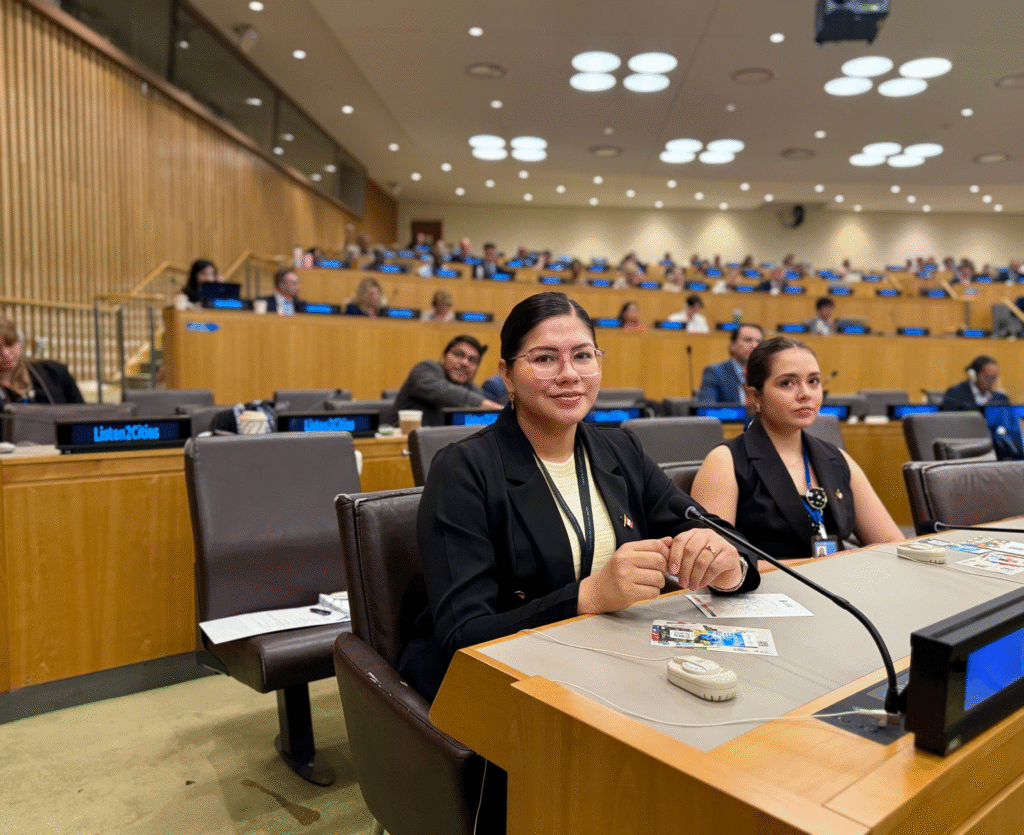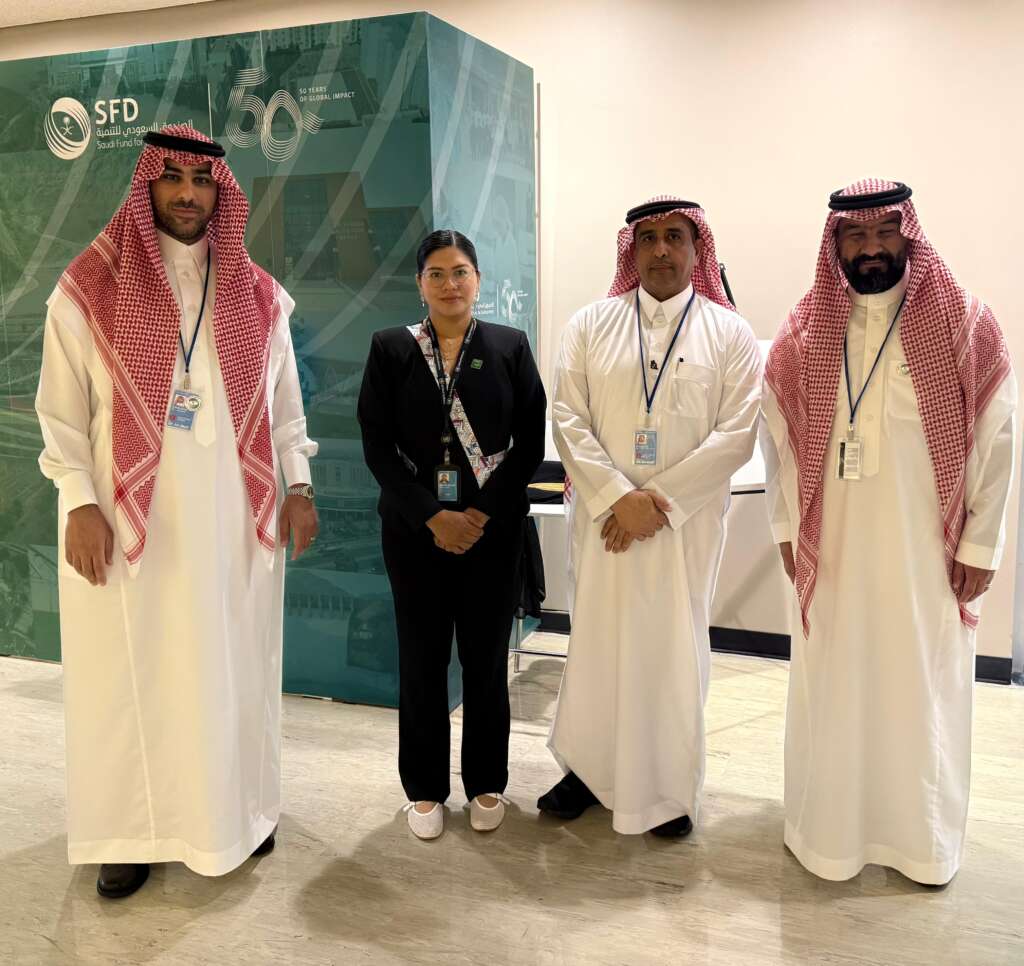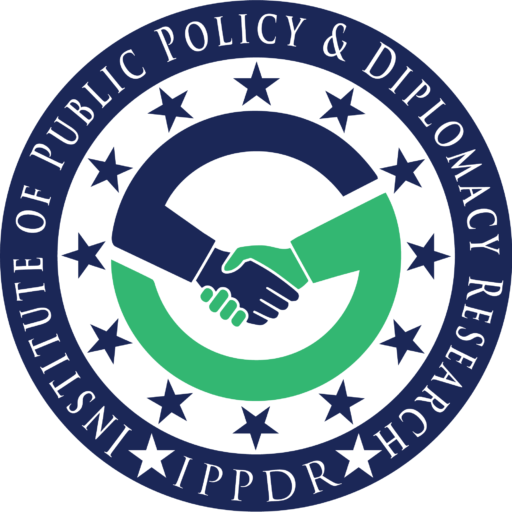The 2025 United Nations High-Level Political Forum (HLPF)
The Institute of Public Policy and Diplomacy Research (IPPDR) participated in the 2025 session of the United Nations High-Level Political Forum on Sustainable Development (HLPF), hosted at the United Nations Headquarters in New York.
The forum, which serves as the central platform for the global review of the 2030 Agenda and the Sustainable Development Goals (SDGs), provided space for reflection, accountability, and renewed commitment to action.
As a research and training institution working at the intersection of peacebuilding, human rights, governance, and youth leadership, our participation reflected the broader mission, which is, to shape policy through education and to amplify underrepresented voices in global decision-making spaces.
A Forum at a Critical Time
The 2025 HLPF convened under the theme: “Advancing sustainable, inclusive, science- and evidence-based solutions for the 2030 Agenda for Sustainable Development and its Sustainable Development Goals for leaving no one behind.”
This year marks the halfway point toward the target year of 2030. Despite notable progress in certain areas, recent reports presented at the forum revealed that many countries are off track in meeting key development goals.
Global inequalities have widened, the climate emergency continues to escalate, and post-pandemic recovery remains uneven. The forum emphasizes that without collective urgency and inclusive partnerships, the goals of the 2030 Agenda may not be met.
IPPDR’s involvement in the forum underscored the need for sustained attention on Goal 16: Peace, Justice, and Strong Institutions. This goal remains central to IPPDR’s mandate and training programs.
It directly relates to the organization’s core belief that without accountable governance, public trust, and civic education, other development goals risk becoming fragile and unsustainable.
IPPDR’s Role and Relevance at the HLPF
IPPDR sent a representative to engage in thematic sessions, side events, and civil society dialogues throughout the HLPF.
While the HLPF is not a negotiation space, it plays an essential role in shaping momentum, aligning priorities, and encouraging state and non-state actors alike to report on and refine their approaches to SDG implementation.

During discussions on multi-stakeholder partnerships, our representative highlighted the necessity of integrating youth, civil society, and education-based institutions in national SDG strategies.
Drawing on the Institute’s work across more than 50 countries, the representative noted that many young people still do not have access to public policy education or peace and human rights training, two foundational elements in the pursuit of sustainable development.
It is vitally essential to integrate youth, civil society, and education-based institutions in national Sustainable Development Goal strategies.
IPPDR representative at the HLPF
In a session focused on localizing the SDGs, the IPPDR delegate emphasized that top-down development plans often overlook local capacity and voices.
The Institute’s training programs, especially its certification in International Peace Practice and Youth and Civic Diplomacy, aim to reverse this trend by equipping leaders at the community level with knowledge and tools to participate meaningfully in national and global processes.
A Voice for Education, Dialogue, and Integrity at HLPF
A central message conveyed by IPPDR at the HLPF was that education is both a right and a prerequisite for peace and progress. It is not simply about literacy or technical skills, but about equipping individuals with an understanding of governance, law, participation, and the structures that shape their lives.

IPPDR reaffirmed that educational programs focusing on peace, public leadership, and diplomacy are necessary to prepare the next generation of responsible decision-makers. Our representative also advocated for a stronger culture of dialogue and transparency within international development.
Drawing on its own institutional practices, IPPDR called for greater accountability not only from governments but from international organizations and large-scale donors whose decisions often impact local communities in complex ways.
Key Themes Reinforced at the HLPF
The forum’s various review sessions centered on several SDGs, including:
Goal 1 (No Poverty), Goal 2 (Zero Hunger), Goal 13 (Climate Action), Goal 16 (Peace, Justice, and Strong Institutions), Goal 17 (Partnerships for the Goals)
IPPDR’s contributions are most closely aligned with Goals 16 and 17. Through both its policy dialogue work and its educational programming, the organization continues to build networks that bridge civil society and government in practical, goal-driven cooperation.
One key takeaway emphasized during the HLPF was the importance of horizontal partnerships, cooperation between regions, cities, and grassroots communities that generate solutions from the bottom up, rather than relying solely on national frameworks or external intervention.
IPPDR’s work in Latin America, Africa, and the Caribbean gives a practical example of this approach. Its emphasis on civic training and youth forums has helped foster more locally relevant solutions in education reform, justice system access, and gender equity policy development.
Next Steps: Bridging Policy and Practice
As the United Nations High-Level Political Forum (HLPF) concluded, participating organizations are encouraged to integrate insights from the forum into their ongoing programming and national dialogues. For IPPDR, this means expanding partnerships with ministries, academic institutions, and youth-led organizations to ensure that training and policy recommendations are grounded in local realities.
The Institute also plans to disseminate its key takeaways from the forum through post-HLPF briefings, policy notes, and upcoming training sessions. These resources are available to participants in our global leadership programs, as well as to alumni networks that continue to engage in peacebuilding, diplomacy, and sustainable development.
Conclusion
In conclusion, the High-Level Political Forum on Sustainable Development continues to play an important role in global efforts to monitor and advance the 2030 Agenda. IPPDR’s participation in this year’s forum reflected a deep and ongoing commitment to building connections between policy, education, and ethical leadership.
Nevertheless, in a time when public trust, social cohesion, and shared responsibility are in need more than ever, institutions like IPPDR help ensure that the work of sustainable development does not remain limited to documents and reports but becomes part of real lives and lasting systems.
The Institute of Public Policy and Diplomacy Research (IPPDR) is a global education and policy institution dedicated to strengthening peace, governance, and diplomacy.
Through research, training, and public dialogue, IPPDR works with youth, educators, public officials, and international partners to support inclusive development and accountable leadership across regions.
Drawing on the Institute’s work across more than 50 countries, it is unfortunate that many young people still do not have access to public policy education or peace and human rights training, two foundational elements in the pursuit of sustainable development.
Our training programs, especially the certification in International Peace Practice and Youth and Civic Diplomacy, aim to reverse this trend by equipping leaders at the community level with knowledge and tools to participate meaningfully in national and global processes.

